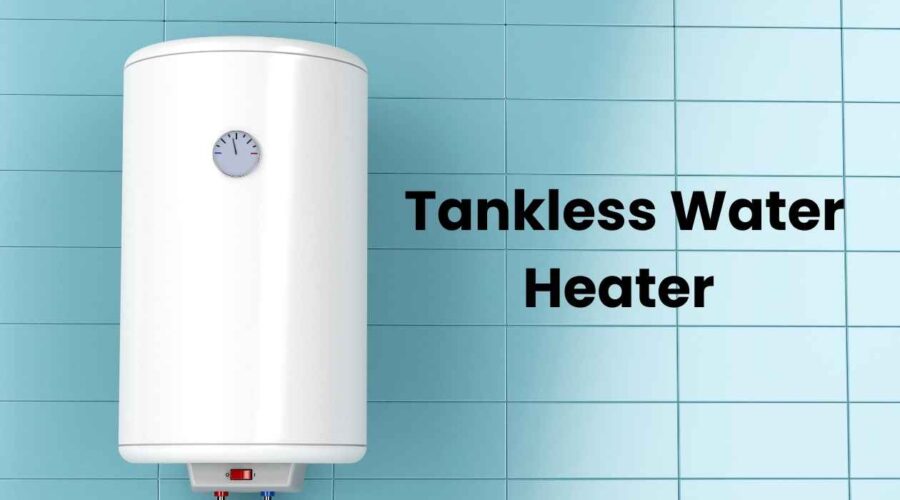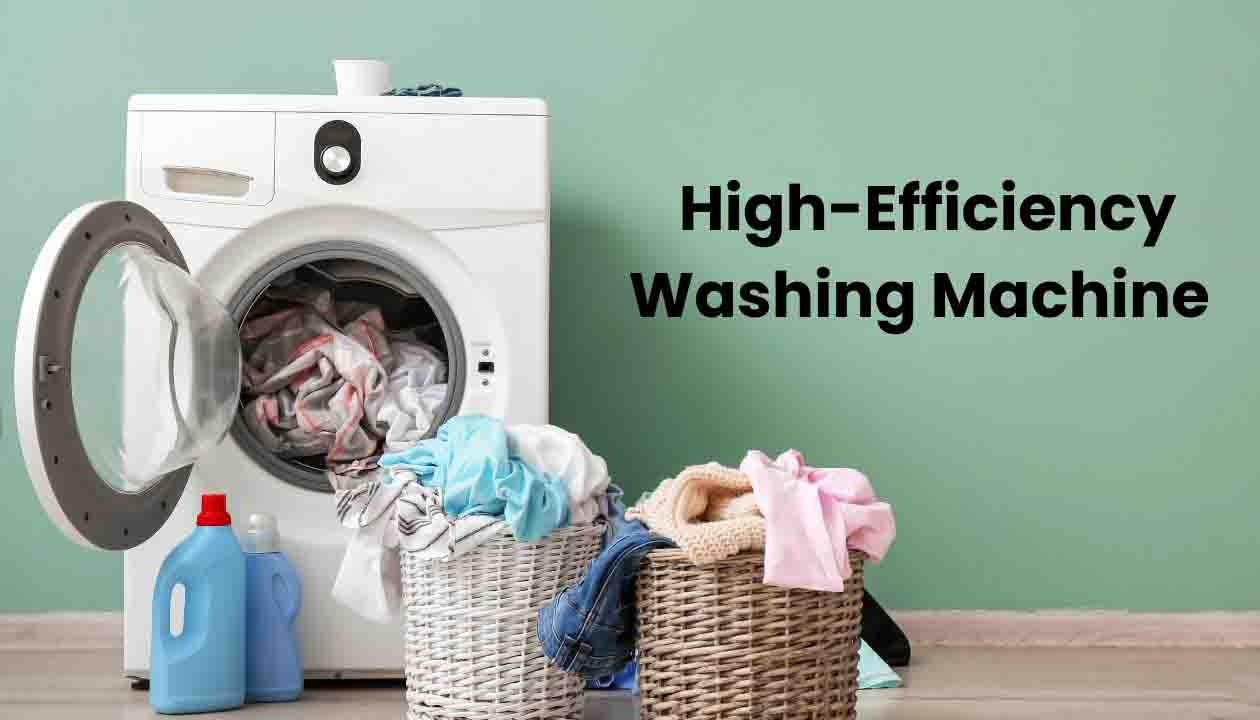Tankless Water Heater: Explore the Benefits
Tankless water heaters are becoming wildly popular, specifically in Wisconsin, due to their efficiency, smaller accommodation requirements, and savings over time. Tank-type heaters store a large amount of water in a tank and keep that water hot continuously. A tankless heater provides hot water only when required, saving a substantial amount of energy by only using energy when you need hot water. In this blog, we tell you all about the advantages of tankless water heater, how they work, and why they are now a favourite among homeowners in Wisconsin. Read on for expert tips on how to maintain and clean your tankless heater, and discover the best models available
What is a Tankless Water Heater?
Tankless water heaters are new-generation units that are commonly referred to as on-demand water heaters. Instead of heating and storing hot water in a tank, it heats water while passing through the unit at the instant when you turn on the faucet. This design takes away the need for a big tank, saving valuable space in your home. Electric tankless water heater are clustered among the most popular types, as they quickly and reliably heat water without the energy inefficiencies associated with tank-based systems.
How Does a Tankless Water Heater Work?
So once you turn on the hot water faucet, cold water comes into the tankless water heaters, where it is instantly heated by either gas or electricity. Water in the unit is heated by a heat exchanger and exits directly through a pipe to the tap. Since a tankless heater doesn’t need to fill and heat up, you’ll have an uninterrupted supply of hot water. Another highlight of an electric tankless water heater is that it only runs when you are using hot water; this results in a very efficient unit that keeps your overall utility bills down.
How does a tankless water heater work? It works to use cutting-edge heating technology that allows water to be heated instantaneously as it flows through. This eliminates bulky tanks that require storage for heated water clearance that is lost depending on the tank. Water is generally heated straightaway at point-of-use, giving a ready supply at absolute efficacy and a waste-free process.
Advantages of Tankless Water Heaters
Tankless water heaters offer several benefits, especially for homeowners in Wisconsin, where energy efficiency and reliable water heating are a top priority:
1. Energy efficiency: With water heating on demand, there’s no more need for constant heating of a gigantic tank of water. This means less amount of energy utilized and savings on your utility bill.
2. Endless hot water: With a tankless water heaters, you will never run out of hot water, making it suited for large families or homes with more than one bathroom. Whether you are taking a shower, washing the clothes, or running the dishwasher, there will always be hot water.
3. Space Efficient: Tankless systems are compact, while some even can be wall-mounted, taking away the floor space in your house. The design is a major plus for people in Wisconsin whose homes tend to be smaller.
4. Longer life: Tankless heaters last longer than conventional units, with an average life of 20 years or so in good maintenance. This means less need for replacements in the future and savings for you.
5. Eco-friendly: Since they utilize less energy, tankless-type water heaters will contribute to lessening the carbon footprint of the home. This eco-friendly design is a major selling point among homeowners who want to make their homes environmentally sustainable.
6. Lower operating cost: Although an individual’s upfront cost for a tankless water heater may be higher than for the traditional water heater, the long-term energy bills and lesser maintenance costs may be what makes it a worthwhile investment.
Why Tankless Water Heaters are Becoming Popular in Wisconsin
Tankless water heaters are being accepted, given that Wisconsin is characterized by cold winters and a high demand for hot water. Their energy efficiency and endless supply make them valid choices for homes in cold climates. Another factor is that, as the residents are looking for more sustainable options, tankless water heaters are often attractive due to their high energy efficiency. This is more so provided by the electric tankless water heater, a safe and environmentally friendly alternative to gas-powered units.
It is precisely this developing awareness, therefore, propelling their ascent onto the popularity threshold; energy reduction and green solution marks. While utility rates keep on climbing, homeowners in Wisconsin are searching for how to lessen their energy bills while providing indoors a comfortable and convenient package, hence tankless water heaters are where the arrow is pointing for many.
Best Tankless Water Heaters
Here is a list of some of the best tankless water heaters available on the market today, highlighting their features:
Model Type Flow Rate (GPM) Power Source Special Features
Rinnai RUR199iN Gas-powered 11 Natural Gas Wi-Fi compatible, high efficiency, compact design
EcoSmart ECO 27 Electric 6.5 Electric Energy-efficient, digital temperature control
Takagi T-H3-DV-N Gas-powered 10 Natural Gas High hot water output, durable construction
Stiebel Eltron Tempra 36 Plus Electric 8.6 Electric Advanced flow control, energy-efficient
Rheem RTEX-18 Electric 4.4 Electric Compact, budget-friendly, easy to install
How to Clean a Tankless Water Heater
Cleaning your tankless water heaters is a key part of making it efficient and long-lasting. So here’s a general guideline on how to clean your heater:
- Power Off: Switch off the water and power supply before initiating any cleaning work.
- Locate the Filters: Most tankless water heaters have filters that would need regular cleaning.
- Flush System: Flush the system out with a descaling solution to get rid of any mineral build-up as best as you can. This step is much more critical for households with hard water.
- Check the Unit: Check for damage in the filters and other components. Clean them or replace them as necessary.
How do you clean a tankless water heater? Regular maintenance includes descaling and the cleaning process, which helps maintain the unit’s maximum efficiency.
Tankless Water Heater Installation
The installation of a tankless water heaters requires professional expertise to ensure optimal performance. The installation procedure generally includes:
- Evaluate your hot water needs and decide how big a unit will do.
- Connecting the system to the water and power source.
- Venting properly (for gas models) or electrical connection (for electric models).
- Check to see that the device is working properly.
Because the installation may be fairly complex, it is important to hire a qualified professional for the work. Correct installation will ensure the tankless water heater runs safely and efficiently.
Tankless Water Heater Cost
Factor Cost Range
Unit (Gas) $500 – $1,500
Unit (Electric) $300 – $900
Installation (Gas) $500 – $1,000
Installation (Electric) $300 – $700
Total Cost (Gas) $1,000 – $2,500
Total Cost (Electric) $600 – $1,600
Maintenance (Annual) $100 – $200
Energy Savings (Yearly) Up to 50% savings on energy bills (depending on usage)
FAQ Questions and Answers
Q1: What is a tankless water heater?
Ans: A tankless water heater heats water on demand by instantly warming it as it passes through the unit, eliminating the need for stored hot water.
Q2: How does a tankless water heater work?
Ans: The heater can either run on electricity or gas, producing hot water almost immediately.
Q3: Are tankless heaters more energy-efficient?
Ans: They are indeed more energy-efficient as only the amount of hot water that one uses gets heated through most parts.
Q4: What is the price of a tankless water heater?
Ans: The price ranges from $1,000 to $3,000; the price depends on the model and installation needs.
Q5: How long do tankless water heaters last?
Ans: Tankless water heaters can last for more than 20 years with proper maintenance.
Q6: Can a tankless water heater provide endless hot water?
Ans: Yes, it heats water on demand, so you’ll never run out of hot water.
Q7: What is the difference between an electric and a gas tankless water heater?
Ans: Electric models are easier to install and typically cost less, while gas models provide higher flow rates and are ideal for larger homes.
Q8: How do I clean my tankless water heater?
Ans: Regular maintenance involves flushing the system to remove mineral deposits and cleaning the filters.
Q9: What size tankless water heater do I need?
Ans: The size depends on your household’s hot water usage, the number of bathrooms, and appliances that require hot water.
Q10: Are electric tankless water heaters a good choice for Wisconsin homes?
Ans: Yes, they are energy-efficient, environmentally friendly, and ideal for homes with lower hot water demands.



